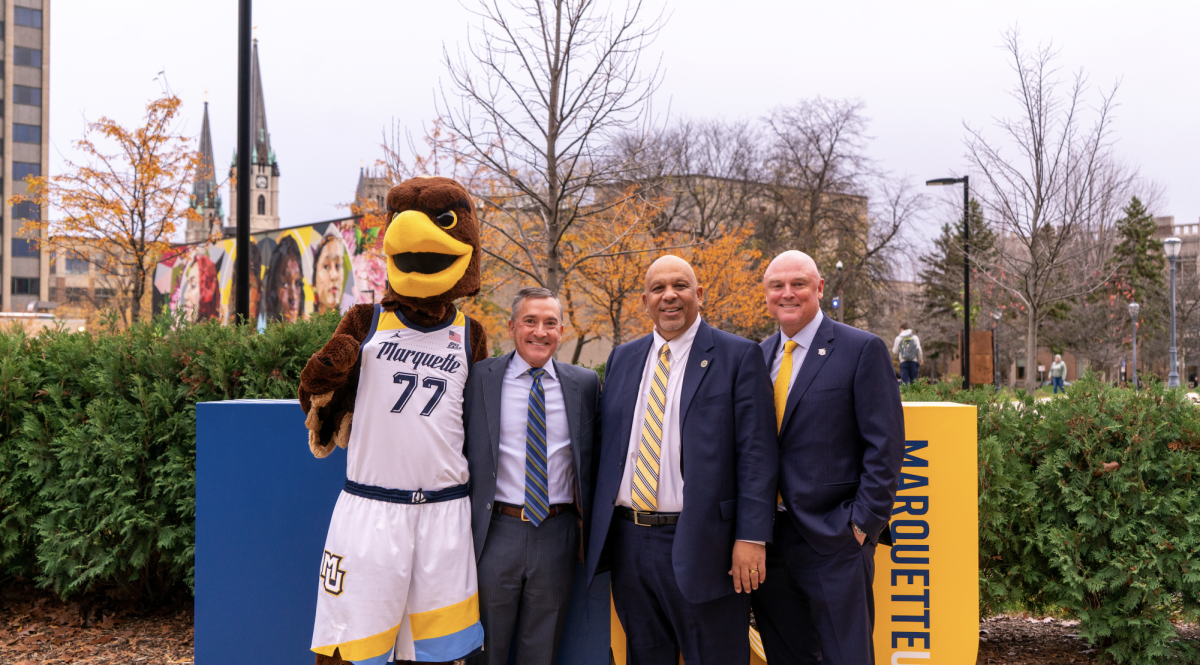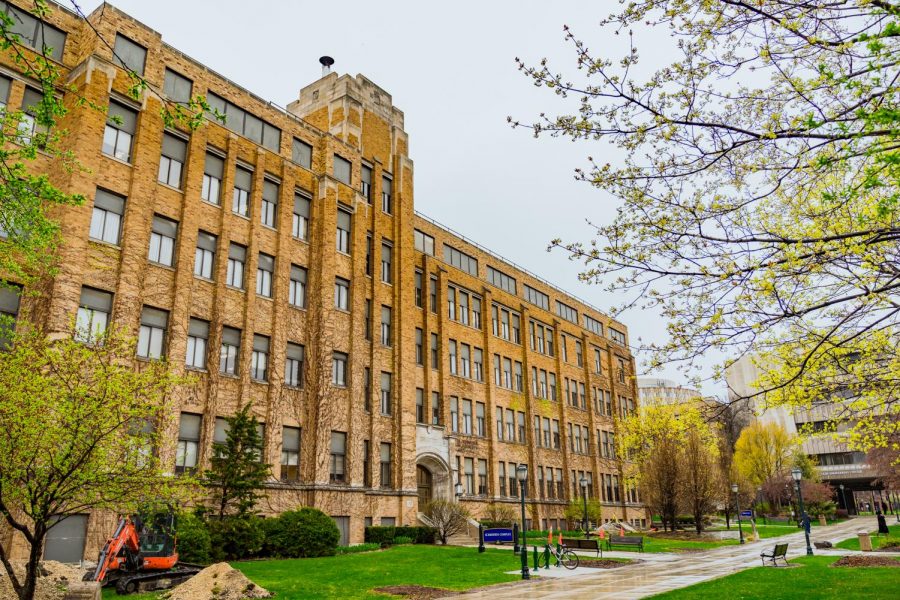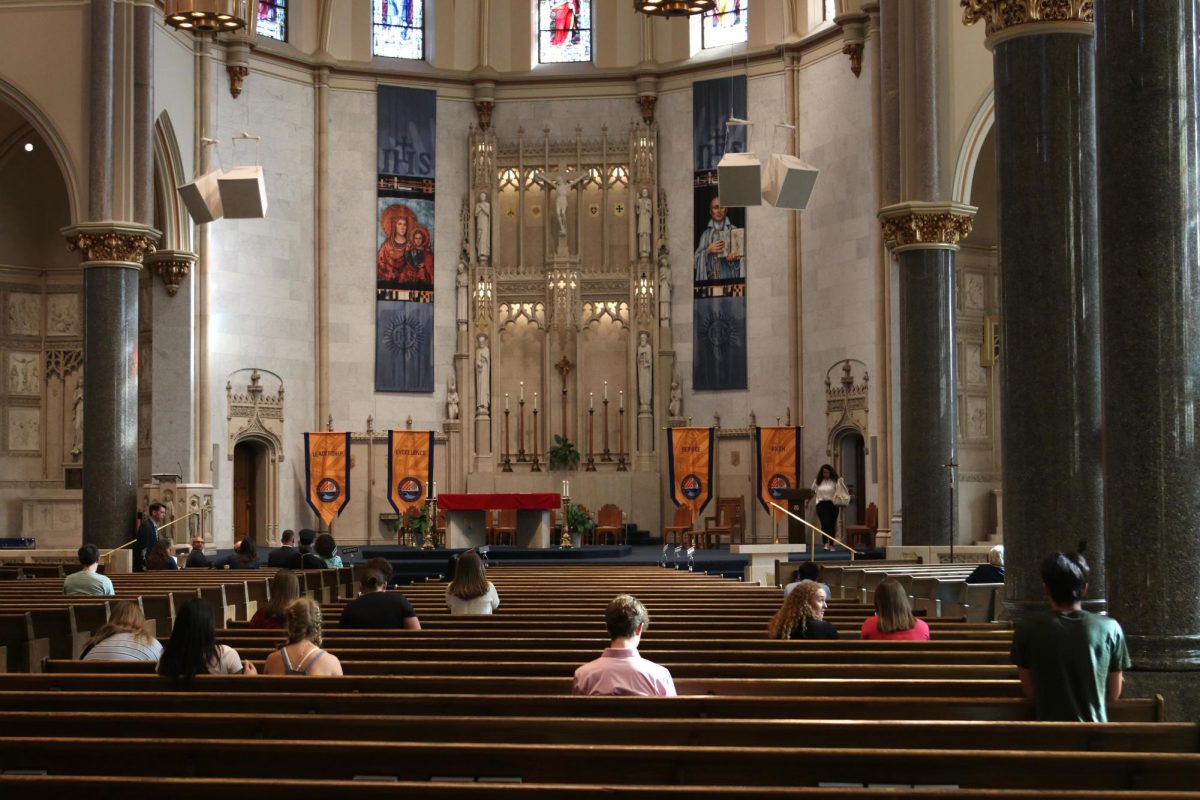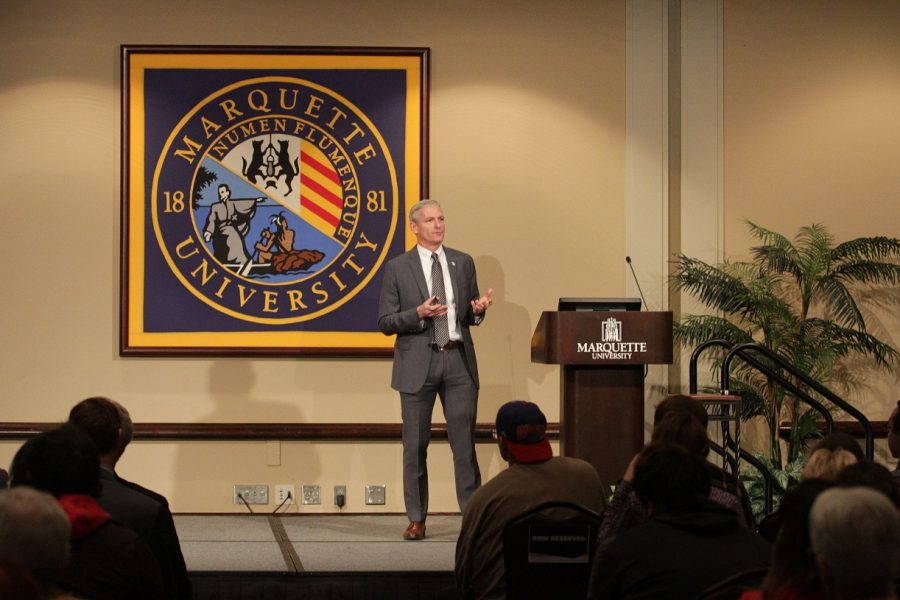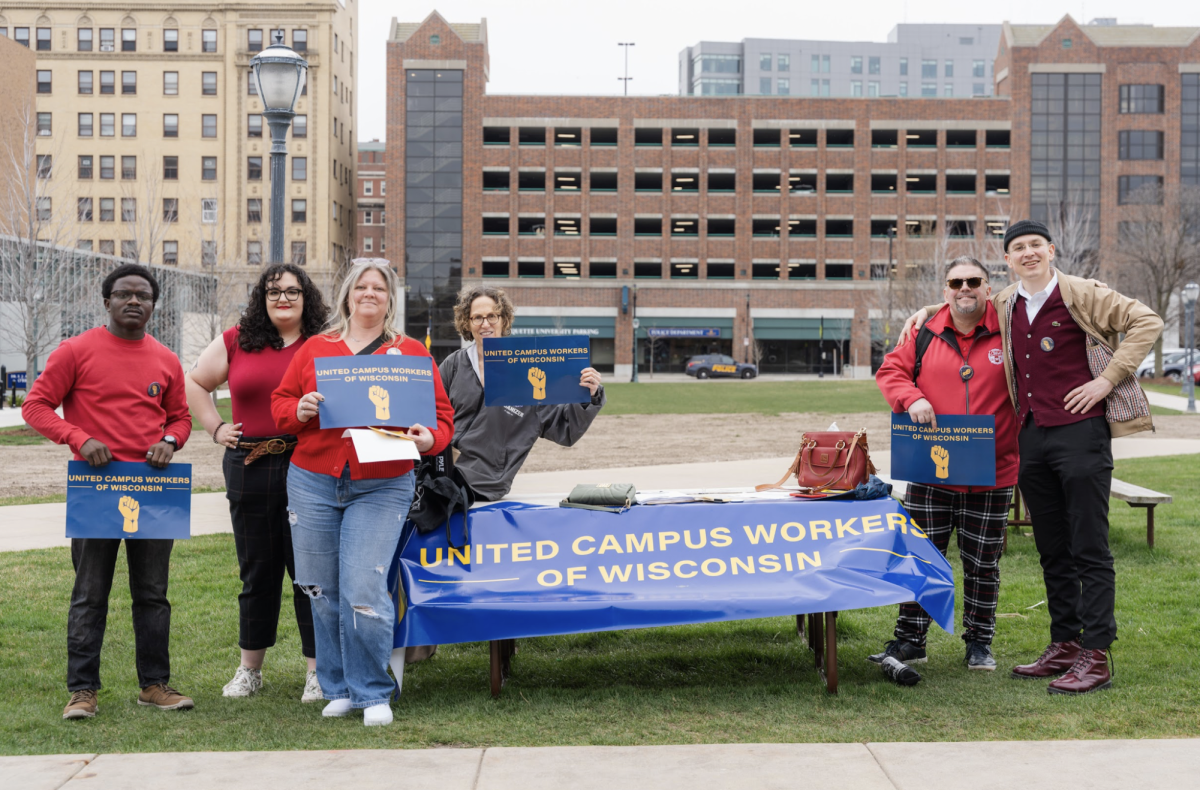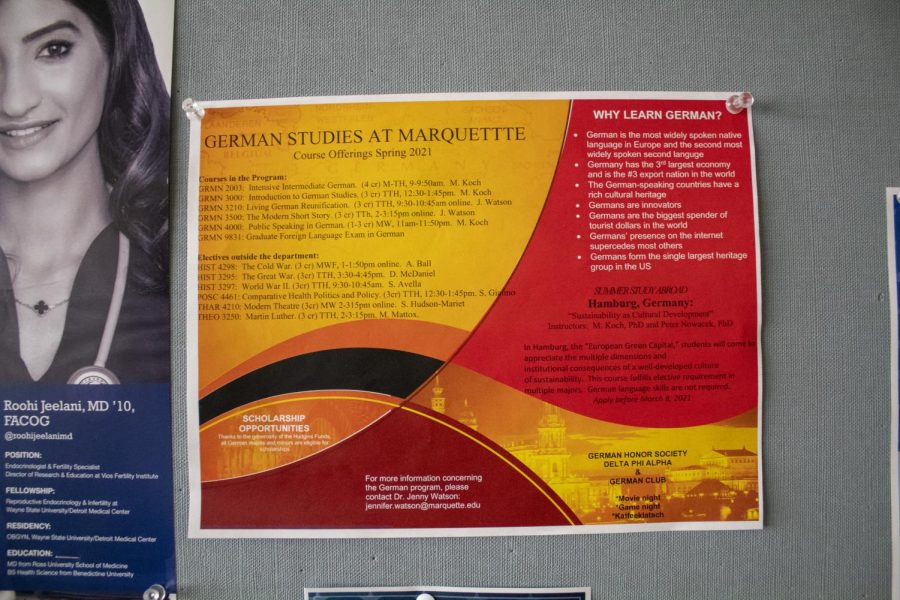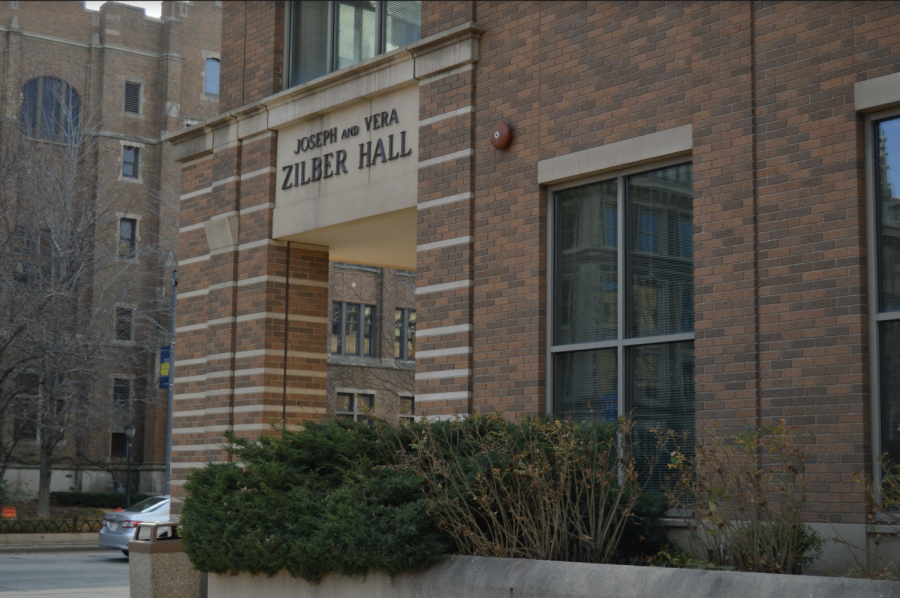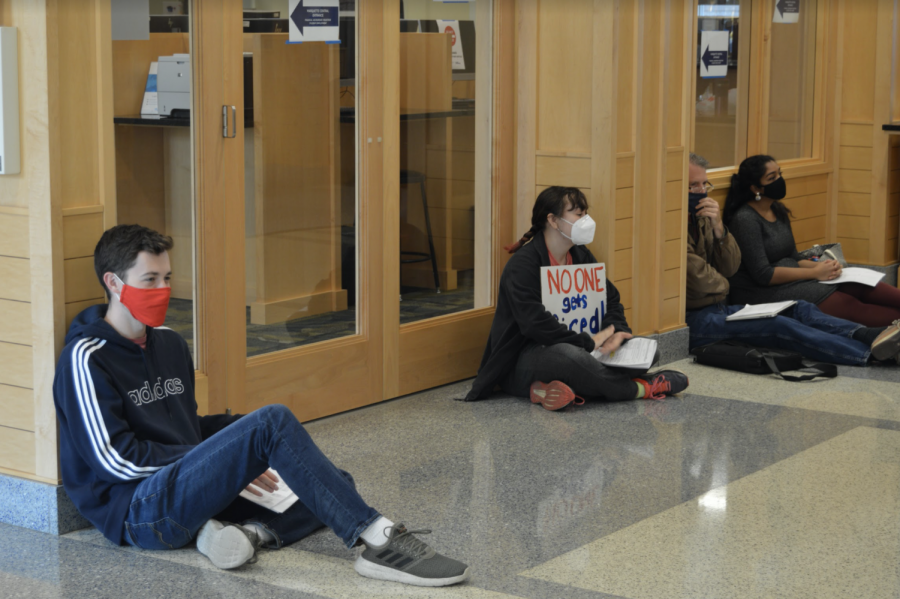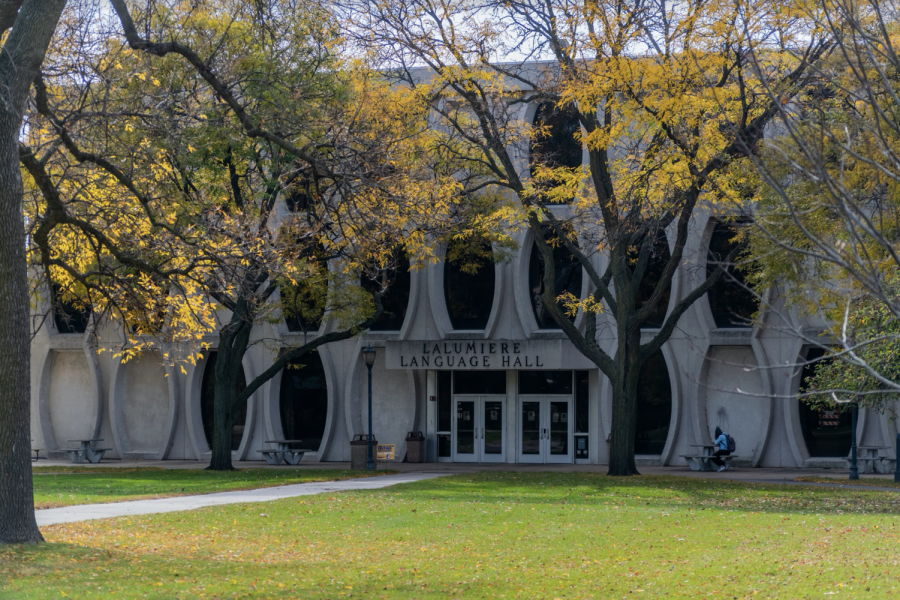Marquette University Academic Senate will conduct a vote to determine their trust in the leadership of Provost and current acting President Kimo Ah Yun, Executive Vice President Joel Pogodzinski and the Executive Leadership Team.
UAS decided to present this resolution due to growing concern by some faculty about a proposed increase in faculty workloads and budget cuts.
A resolution for a vote of no-confidence was announced at the UAS meeting Nov. 18 and the official vote will take place at a closed special session of UAS next Monday.
The UAS Executive Committee, which includes Ah Yun, met Nov. 13 to talk about the resolution. During this meeting the resolution was revised and prepared for the Nov. 18 senate meeting.
Provost Kimo Ah Yun was named acting president after University President Michael Lovell’s passing in June, but the search for his successor has been underway, and an announcement is expected soon.
In the past year, Provost Kimo Ah Yun has received criticism from UAS members regarding communication about the university budget and now workload changes.
A $9 million budget shortfall was announced by the university last December, followed by a plan to cut the universities spending by $31 million by 2031. Last April a full budget report was made public, and a committee from UAS issued eight recommendations to administration hoping for more transparency regarding spending.
Kevin Conway, University Spokesperson, said in a statement that there needs to be dialogue and collaboration in order to work through challenges Marquette is facing.
“Any vote of no-confidence is a non-binding, symbolic act by an academic governance body, which carries no legal authority,” Conway said.
Elaine Spiller, a UAS senator from the College of Arts & Sciences, announced the resolution, however she said she was speaking on behalf of all the concerned faculty.
“If Marquette is to survive as a university, it needs new leadership. Marquette deserves leadership that faculty, staff and students can trust to steward it according to its mission,” Spiller said.
A special meeting of UAS earlier this month gave faculty an opportunity to bring concerns about the change in faculty workloads to the provost and gave Ah Yun a chance to respond.
Paul Gasser, Chair of UAS, compiled around 50 emails to present at the special meeting that he’s received from entire departments and other faculty members regarding the change in workloads.
In those emails Spiller said there were around 20 calls for a vote of no-confidence in Marquette’s leadership team. A vote of no-confidence showcases how the Academic Senate does not support university leadership and believe in their capacity to fulfill their mission.
On a national scale, Rutgers President Jonathan Holloway stepped down after the university senate issued a vote of no-confidence the semester prior. This past September, Brandeis University President Ronald Liebowitz announced his resignation after a vote of no-confidence from faculty.
Conway said during this process the Executive Leadership team is keeping their Jesuit values at the forefront, but economic and demographic factor play a role in the universities spending.
“We cannot continue to do things the way we always have – we need to be proactive now so that Marquette can thrive for the next 150 years,” Conway said.
This story was written by Sophia Tiedge. She can be reached at sophia.tiedge@marquette.edu.




